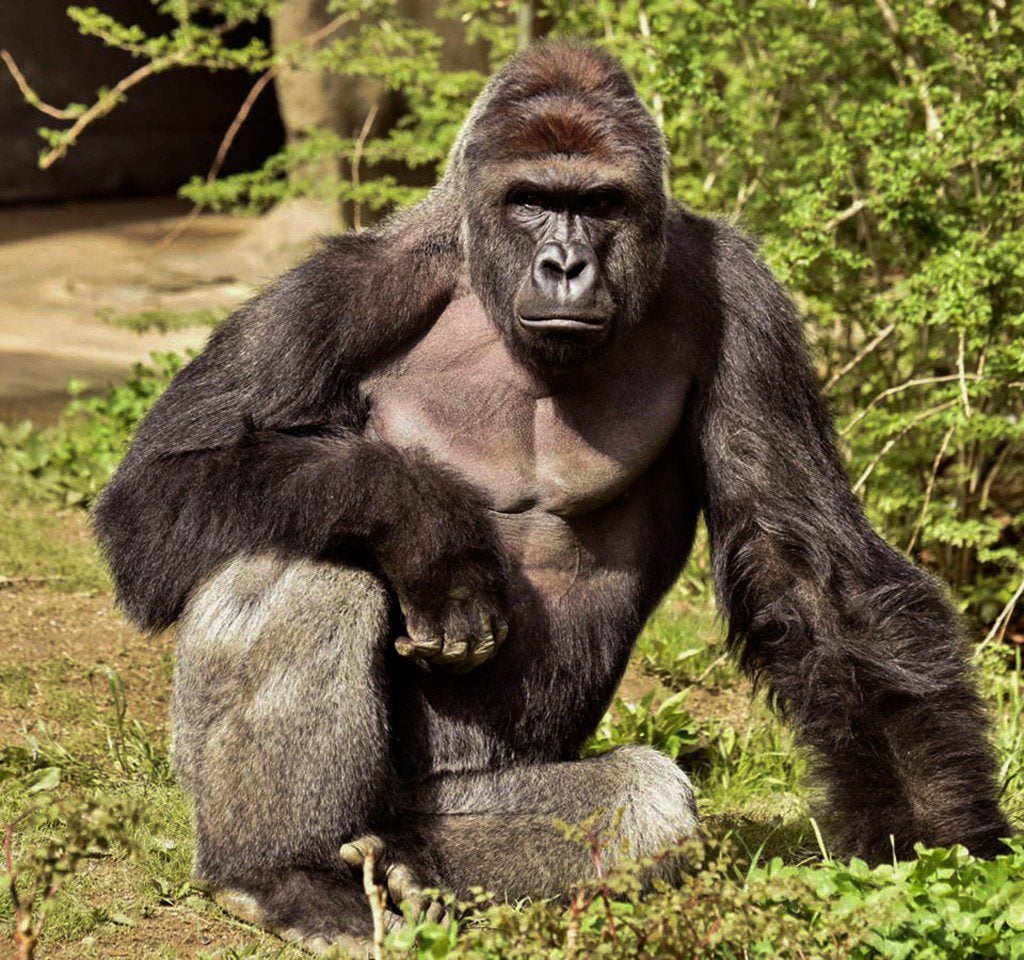
For the past few days, my Facebook feed has been filled with video of the Cincinnati Zoo incident. A young boy climbed through the barriers and fell into the gorilla enclosure. Harambe the Gorilla dragged the child all over the compound. Zoo officials were forced to shoot the endangered animal to protect the child. As a parent of three kids, I could barely stand to watch the animal drag the little boy around the enclosure. I wanted to jump into the video and into the compound to save him.
It was a tragic situation, because I hate the killing of animals. In my mind, animals contain the ruach of God, His very breath. I find trophy hunting so repugnant, even sinful. It’s the wanton destruction of God’s creation for no good reason. I even avoid killing spiders.
But this whole incident has profoundly disturbed me. Facebook groups, hashtags, petitions, and images of people leaving flowers for the animal at the Cincinnati Zoo have exploded. On the milder side, people have blamed the parents and demanded that Child Protective Services visit their home. Some have gone so far as to say they should have been shot rather than the gorilla.
We are rightly horrified at the shooting of a beautiful animal. It was a sad and preventable tragedy. But the outsized reactions to this animal’s death vs. the child’s survival reek of a spoiled sentimentality that has led to the worst mass killings in history.
In Walker Percy’s The Thanatos Syndrome, Tom Moore is having a conversation with a priest who was in Germany before World War II. He talks about the beauty of a civilized Germany, full of laughter, intellectual development and education. But, the priest relates, when they started talking about loving Germany, Hitler and the Nazi party, their hearts, minds and souls became possessed. They never talked about hating Jews. No, they talked about their intense love for their country and their pledge to oppose any danger to its purity–to love Germany with all their hearts, minds and souls. In the final crushing line of the scene (most likely a tribute to Flannery O’Connor), Father Smith says, “Don’t you know where such tenderness leads?… it leads to the gas chamber.”
Chilling words. Percy (and O’Connor before him) was pointing out that really terrible evil is often rooted in a misplaced, false love in a person, place or thing. In doing so, he is pointing to the Augustinian idea that evil has no real existence. Rather, it’s spoiled goodness. Evil in Germany didn’t come through hate. It came through loving other things so much you’d be willing to wipe out entire groups of people in the gas chamber. Even more chilling, you do it convinced you’re right and just, with your hand over your heart and a smile.
When we call for the shooting of parents over a gorilla because they failed to prevent their son from falling into an enclosure, I’m afraid we’re guilty of this kind of false sentimentality. In our desire to protect endangered animals (a good thing), we would sacrifice any other considerations, even human life, to that end. This creates a new, scary morality–one divorced from the reality of individual people. And when you lose contact with humanity, heads start rolling. Literally.
In one story about the event, the boy’s father is pictured right under an article which claims he has a long criminal record. Scroll down and you’ll see a picture of the shot gorilla, shining in the sun, with a caption that says the animal lived for seventeen years.
Meanwhile the boy’s mother is being mom-shamed all over the Internet, called a bad mom who is unworthy of her children and therefore should lose them. They say they would “never” allow their child to get away from them. They talk about the need for “discipline.”
Hmm, where have we heard this before? Oh yeah, right here.
In the end, false sentimentality spoils any original good it might have intended. When you divorce people from their humanity in favor of a “greater good”–as you determine it–the line that marks human life as precious and indispensable will just keep moving. And when that line moves far enough, people will start dying in large numbers. When that happens,you can justify any sort of killing, maiming or torturing. Every person, place, thing–or animal–becomes expendable.












